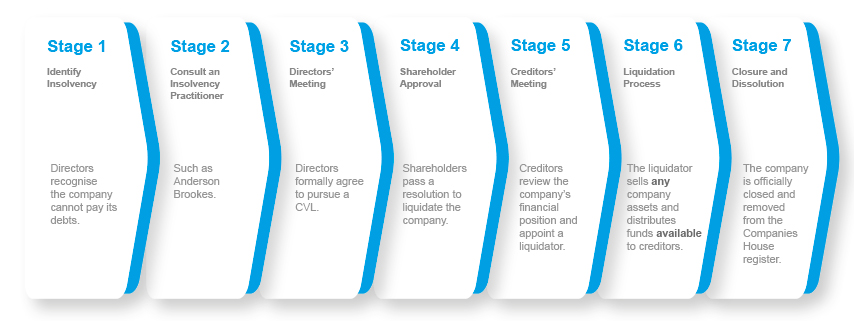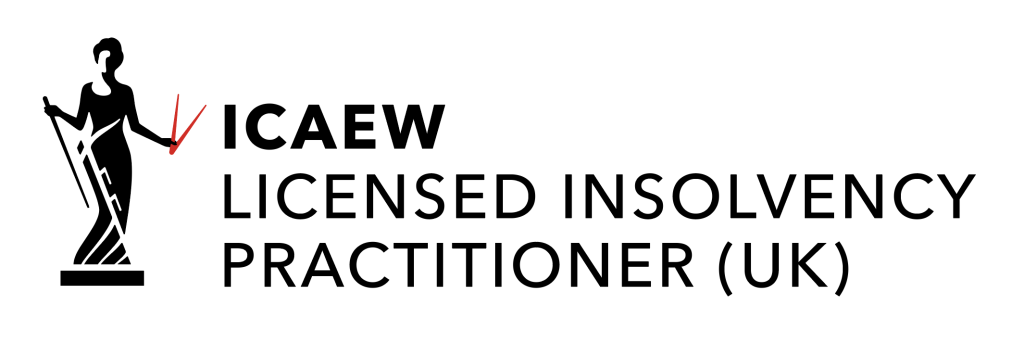Closing a Limited Company?
Anderson Brookes Insolvency Practitioners help directors close limited companies quickly, legally and with expert guidance every step of the way.
Free confidential advice and free quote
How to Close a Limited Company - Free Expert Advice
Closing a limited company in the UK can feel daunting, but with accurate, clear, and tailored guidance, you can confidently choose the right path. Whether your business is solvent, insolvent, dormant, or simply inactive, selecting the proper closure method helps prevent unnecessary stress, costs, and potential legal issues. At Anderson Brookes, we specialise in efficient, straightforward advice and can typically place your business into liquidation within just 8 days.
Why Choose Anderson Brookes?
Anderson Brookes focuses exclusively on businesses facing financial difficulty, providing a specialist insolvency service designed specifically for SMEs. Our key strengths include:
Quick Company Closure: Typically, businesses can be placed into liquidation within 8 days. Managed by our licensed and regulated Insolvency Practitioners.
Service: We deliver high-quality, customer-focused guidance quickly and clearly. Over 100 5 star reviews!
Experienced Practitioners: Our Licensed Insolvency Practitioners offer direct and practical advice.
Dedicated SME Support: We understand the unique challenges faced by small and medium-sized businesses, enabling us to offer solutions tailored specifically for your needs.
Example Voluntary Liquidation Process

Why Get Expert Advice Before Closing Your Company?
Closing your company involves important legal obligations, and mishandling them can lead to personal liabilities, fines, or even director disqualification. Expert advice from Anderson Brookes ensures you:
Clearly understand your legal obligations and duties
Choose the most suitable closure method based on your specific situation
Reduce risks associated with creditor claims, HMRC penalties, or personal liabilities
Achieve an efficient and legally compliant closure
“From the first call I received from Anderson Brookes I was very impressed with how friendly and professional they were. I agreed to take them on to liquidate my company and very pleased with my decision. All done and dusted in very quick order.” Lynne Bull
Key Steps to Close Your Company
Anderson Brookes specialises in helping small and medium-sized enterprises (SMEs) navigate the closure process efficiently. Our streamlined service prioritises your needs, focusing on clear communication, specialist advice, and prompt action:
Identify the most suitable closure method based on your company’s finances.
Inform HMRC clearly and promptly, ensuring all tax obligations (VAT, PAYE, Corporation Tax) are addressed.
Prepare and submit final accounts and returns accurately to Companies House and HMRC.
Manage and settle outstanding debts or handle them formally through liquidation.
Efficiently distribute remaining assets (for solvent closures).
Complete and file essential documents swiftly (e.g., DS01 form or liquidation paperwork).
Notify creditors, employees, and shareholders formally and transparently.
Popular Ways to Close a Limited Company
The closure method you choose depends on your company’s financial situation and any outstanding debts or assets involved. Here are the main options:
| Closure Method | Suitable For | Key Considerations |
|---|---|---|
| Voluntary Strike Off (DS01) | Solvent companies with no debts or assets | Quick, simple, cost-effective; minimal fees (£33-£44) |
| Members’ Voluntary Liquidation (MVL) | Solvent companies seeking tax efficiency | Offers tax advantages; requires a Licensed Insolvency Practitioner |
| Creditors’ Voluntary Liquidation (CVL) | Insolvent SMEs unable to pay debts | Legally settles debts; protects directors; professional fees involved |
| Dormant Company Closure | Dormant companies with no recent trading activity | Straightforward, minimal paperwork and cost-effective closure |
Can you liquidate your limited company?
Why Directors Choose Anderson Brookes
With more than 25 years’ experience and thousands of directors helped, we’re trusted by business owners across the UK. You can speak directly with an expert insolvency practitioner and we’ll help you understand your options clearly and quickly. We specialise in working with small and medium businesses and we understand your perspective and priorities.
Ready to
Move On?
If you’re ready to close your company, stop creditor pressure, or just want to understand your next steps, we’re here to talk.
Call us now on 0800 1804 933 or request a call back - we’re here to help.
Frequently Asked Questions
Have a company in England or Wales? These are your limited company business debt, liquidation and insolvency questions answered.
Can I liquidate the company myself?
No. Only a Licensed Insolvency Practitioner can place a company into liquidation.
What are the advantages of liquidation?
Placing the company into liquidation will stop debt enforcement, including bailiff action. The directors are usually in control of the process and can choose the liquidator. In most cases, it can be completed within two weeks without needing to attend any formal meetings. Company debts are usually written off unless they are personally guaranteed. Directors who act responsibly can show they handled the company’s financial affairs properly.
Is liquidation the same as dissolving the company?
No. Only a Licensed Insolvency Practitioner can liquidate a company. A director can apply to dissolve a company through Companies House, but only if certain conditions are met. If the company is insolvent, it may be a criminal offence to apply for strike-off. Always take professional advice before doing this. If you think you might qualify for dissolution, call us and we’ll explain the process. See our Licensed vs Unregulated page.
What is compulsory liquidation?
This happens when a creditor applies to court to wind up a company due to non-payment of a debt over £750. If the court agrees, the company is placed into compulsory liquidation. This often leads to more problems for directors, who may find it harder to defend against accusations such as wrongful trading. It is usually better to start the process voluntarily. See Strike Off vs Voluntary Liquidation for more details.
How much will it cost to liquidate my company?
It depends on your situation. In most cases, the directors do not pay the costs personally. The liquidation is paid for using company assets. We are a small practice based in Bolton with low overheads, so we offer some of the most competitive fees in the UK. All costs will be confirmed in writing before we proceed. You may also be interested in CVL Costs.
What is a phoenix company?
This is a new limited company that starts after an old one has gone into liquidation. It allows the business to carry on with the profitable parts of the original company. There are strict rules about reusing a company name, so it’s important to get advice before going ahead. For further detail and more simple explanations of insolvency and liquidation terms see our Glossary.
What is a Members’ Voluntary Liquidation (MVL)?
An MVL is used when a company is still solvent and can repay all its debts. It may be the right option if directors want to retire or step away from the business. MVLs can offer tax benefits, but they must be handled by a Licensed Insolvency Practitioner. See all types of liquidations.
What is wrongful trading?
If a company is insolvent and directors carry on trading, they may be accused of wrongful trading. A director could be held personally liable if they knew, or should have known, that the company couldn’t avoid liquidation and did not act to reduce losses. Acting early helps reduce this risk.
Do you only offer formal insolvency advice?
No. Many businesses contact us who do not need formal insolvency procedures. We help explore all the options, including self-help and informal solutions. If formal action is needed, our Licensed Insolvency Practitioner can act for you directly.


